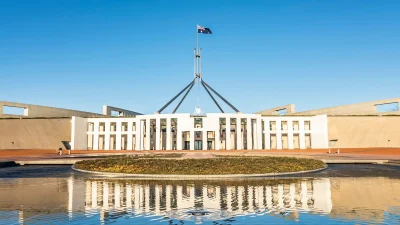Why the financial affairs of ASIC commissioners will remain private


The private financial interests of Australian Securities and Investments Commission (ASIC) commissioners will remain private, despite the efforts of West Australian Labor MP, Patrick Gorman.
Gorman sought to use a question on notice during a recent hearing of the Parliamentary Joint Committee on Corporations and Financial Services to try to determine what was on the ASIC Commissioner’s register of private interests but found his way blocked.
Gorman asked whether just as Parliamentarians were required to declare their interests, albeit without nominating the value or the quantity of any interest, whether the same applied to ASIC Commissioners.
However, answering his question on notice ASIC noted that while commissioners were required under the ASIC Act to reveal to the minister “any direct or indirect pecuniary interest in a business in Australia or in a body corporate carrying on a business in Australia” they did not have disclose it to anyone else outside of the ASIC chair.
“The ASIC chair is required to make the disclosure in writing to the Minister (rule 13 of the Public Governance Performance and Accountability Rules 2014 (PGPA Rules),” it said. “The commissioners (other than the chair) are required to make the disclosure in writing to the chair, with a copy of that disclosure included in the records maintained by ASIC’s commission secretary.”
“The commissioners, including the chair, are required to disclose to each other either orally or in writing any material personal interest that relates to the affairs at ASIC as soon as practical after they become aware of the interest (i.e. at the next commission meeting) and ensure that that it is recorded in the minutes of the meeting ,” the ASIC answer said, noting that this was similar to the obligation imposed on company directors by Section 191 of the Corporations Act.
“The information contained in these disclosures is personal information concerning the financial affairs of the commissioners and in some cases, their family members. The personal information is provided to the minister and other commission members by a commissioner, on the basis that it would not be published or widely disseminated. Neither the ASIC Act nor the PGPA Act make any provision for public disclosure of this disclosure.
“… Members of Parliament are elected to office by the public, who they represent and are accountable to. Statutory office holders such as commissioners are appointed to Office by the Governor General on the recommendations of the minister and are accordingly obliged to disclose their interests to the executive.”
Recommended for you
The Governance Institute has said ASIC’s governance arrangements are no longer “fit for purpose” in a time when financial markets are quickly innovating and cyber crime becomes a threat.
Compliance professionals working in financial services are facing burnout risk as higher workloads, coupled with the ever-changing regulation, place notable strain on staff.
The Senate economics legislation committee has recommended Schedule 1 of the Delivering Better Financial Outcomes legislation be passed as it is a “faithful implementation” of the recommendations.
Treasurer Jim Chalmers has handed down his third budget, outlining the government’s macroeconomic forecasts and changes to superannuation.














